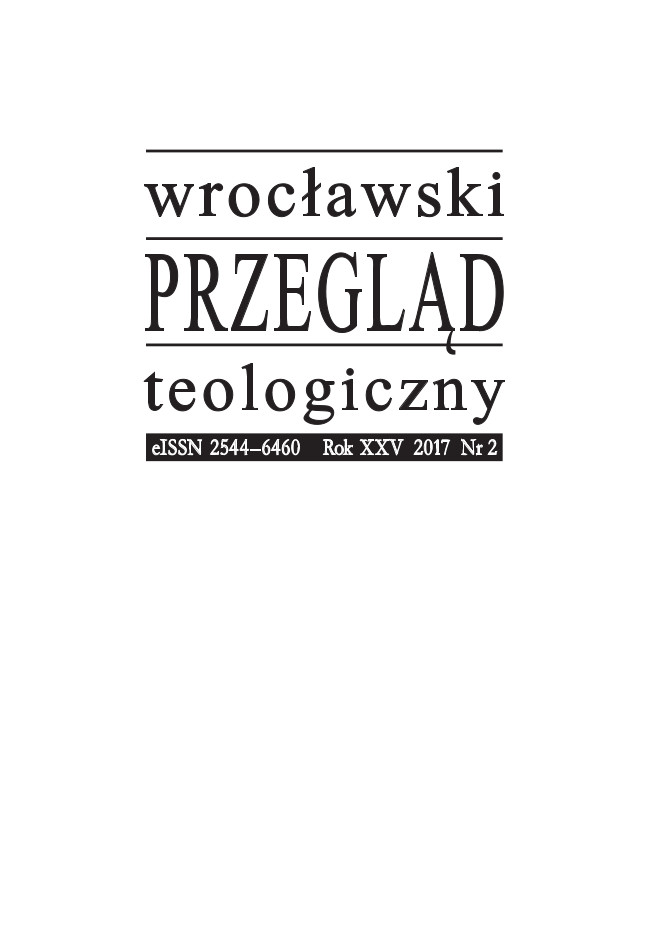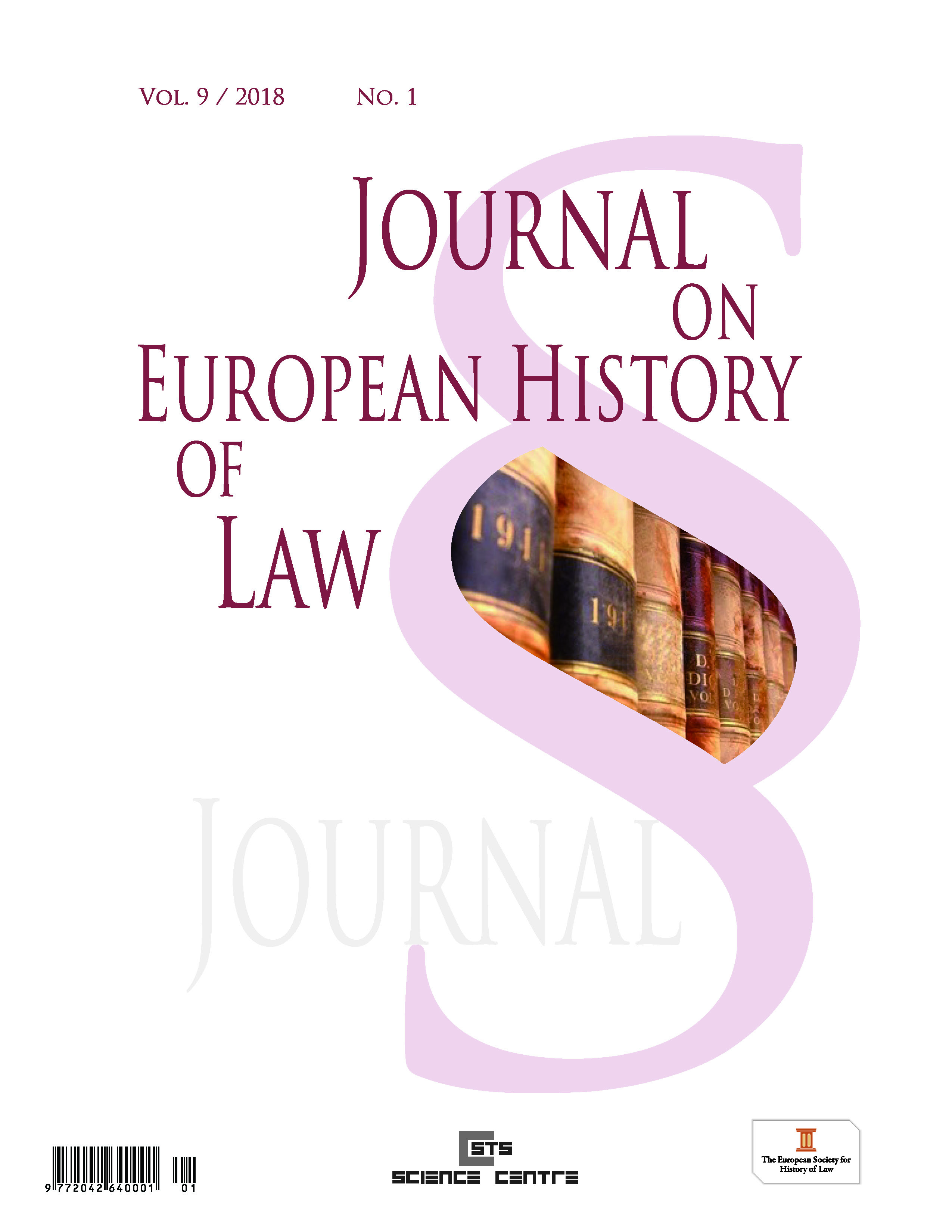Судове красномовство античності як дискурсивна практика: Лісій
The author attempts to examine the features of judicial eloquence of antiquity through the prism of analysis of speech Lysias.
More...We kindly inform you that, as long as the subject affiliation of our 300.000+ articles is in progress, you might get unsufficient or no results on your third level or second level search. In this case, please broaden your search criteria.
The author attempts to examine the features of judicial eloquence of antiquity through the prism of analysis of speech Lysias.
More...
Under the subjective factors, that is, the subjects of national security, we mean those factors (entities) who have awareness of themselves, their environment and their influence on the environment, and they come from people, human groups, organizations and institutions, and affect national security. Subjective factors of national security are divided into threats and entities for reaching, preserving and developing national security. In this paper, the author deals with the subjects of endangering national security in a way that points to the nature of these factors, and then to the division into internal and external ones. After that, the author gives an explanation of each of the subjective factors and the manner of their threat to national security. The author devotes particular attention to the organized criminal groups as subjective factors of endangering national security.
More...
Prof. dr. sc. Mirjan Damaska (born in Brežice, October 8, 1931), for his stay in Zagreb in 2001, during the month of June, he held a three-day lecture at the Faculty of Law, University of Zagreb, for students of postgraduate studies in criminal law. The lecture was tone recorded, and the book was created as a result of the transcript of it. Prof. dr. sc. Mirjan Damaska has shared his rich experience of experts in the field of comparative, international criminal law, which he has acquired as a lawyer and university professor, both in Zagreb and at the Faculty of Law of the University of Yale (USA) with students for staying at the Law Faculty in Zagreb, as he himself states, thirty years of retirement. Book publisher is the Faculty of Law in Zagreb, the book was published in 2001 and numbered 81 pages.
More...
Maintenance and storage of books in the bishop's curia constitute an important part of church administration. This article addresses the canonical aspect of such books.First, the provisions of the Code on the need to maintain specific registers in the curia were first introduced. Second, the books necessary for the proper management of the diocese in the curia are presented.Next, the books for the registration of certain facts of legal importance are discussed. Finally, the focus has been put on the books in force under the specific law.
More...
After the years of an indiscriminate Globalization, it is to see if a universal statute of international law does really exist. Under a substantial aspect, the so called ‘Global Law’ didn’t come to be an accurate law-system. And this for several reasons: first of all, the problems of settlement, accountability, justiciability of the decisions (in a broad sense) are yet to solve. All that is so despite the fact, the Global Law is not considered formally a de iure cathegory. Other eminent Authors tried to take the concept of ‘Universal Constitution’ out from the main acts of international law, with special regard to the UN norms. The argued arguments are remarkable and in some way very original. Thank to these theories, it is possible to establish some compass points in the relations between international and regional institutions, for example UN and European Union. The fact is that no one can affirm the existence of an undiscussed (or at least most accepted) authority at international level. Notwithstanding a new kind or relations between these actors is now arising: ius gentium or ius inter gentes?
More...
The article reviews the ‘religious communities' arrangement’ in Israeli family law, an arrangement that divides the citizens of Israel into religious communities, regulating their affairs of ‘personal status’ in separate religious courts, adjudicating in accordance with religious law. The article demonstrates that the Arrangement defies the concept of state sovereignty, as it is not based on ‘Westphalian’ concepts of space and territory, but on a different concept, originated in Israel's history, and Islamic pre-modern concepts such as ‘umma’ and ‘millet’ – The ecclesiastical community of believers defying perceptions of political boundaries, and other communities of non-believers, subjected to it. The article concludes with a possible justification for this challenge of the state's sovereignty, rooted in ideas of legal pluralism.
More...
Treatise on prescriptive and sociological-legal levels of the aspects, consequences, force and effect of the Constitution of the SR in the years 1992-2012. In the course of four months of the year 1992 the Constitution acted as a basic law of the national republic statehood of the SR within CSFR, it provided the form of legal extinction of federation and the rise of two sovereign republics. As a constitution of a sovereign state it was in force by the year 2004, until the accession of the SR to the EU. Twenty years of history of the SR Constitution were marked by ten constitutional amendments to the supreme law. The changes occurred in the period between 1998 to 2001. The Slovak Republic as an International entity is morally and legally continual with the Slovak, national and anti-fascist statehood.
More...
This year we celebrate the quincentenarian anniversary of the 1517 printed edition of the Tripartitum. In his book with legal authority in Hungary for centuries, Werbőczy used various terms to designate ius commune. In the Tripartitum, there are different terms, such as ius commune, lex communis, communis opinio, etc. In this paper, the author shows that these terms, especially ius commune and lex communis are referring to well-known authors of the ius commune (Bartolus, Baldus, A. Aretinus), although their names are not mentioned. In accordance with the long-standing European legal tradition, these terms are synonyms of ius commune in Hungary, as well. In Werbőczy’s Tripartitum, ius commune as a legal term is not referred to the common law of the Kingdom (decreta generalia), but to the European ius commune.
More...
During the period after World War I, the state's interference in the relations of Civil Law and economic procedures was extremely limited. The commonly accepted understanding was that the price of the different commodities was regulated by the effect of demand and supply. Any intervening could only be temporary and in cases if a catastrophic circumstance occurred. As opposed to this, if these processes were so severe, that they affected the economic life due to their longitude and magnitude, then the need for regulation arose. The same thing occurred after World War I, which had a long-lasting effect on Civil Law, especially if we take the economic separation and the changes in the production and consumption processes into account. All of these made the appropriate regulation of the matter of prices a necessity. It can be assessed that the state proved to be extremely strict when it came to sharking profiteering cases in the economic life. The war and the following economic relations upstaged the individual needs. To protect the consumers, several actions deemed to be punishable, if certain ploys resulted in unfair profiteering incompatible with contemporary economic morals.
More...
The author analyzes in the first part of his article the influence of the Byzantine legal tradition on the development of private law in Georgia. Special emphasis is given to the code (compilation) of king or emperor Wachtang VI in the first half of the 18th century. The comprehensive code of Wachtang VI is based mainly on Byzantine law. In the second part of the study the structure, the main institutions as well as the sources of the Georgian Civil Code promulgated and put into effect in 1997 are analyzed. The author outlines that the redactors of this code availed themselves of the scholarly achievements of the German pandectist legal science based substantially on Roman law tradition. The redactors of the Civil Code of 1997 took into consideration the French Civil Code, the German Civil Code, the Italian Civil Code of 1942 as well as the New Dutch Civil Code. The redactors of the Georgian Civil Code did not adopt the concept moniste whereby the Civil Code of Georgia is no code unique ? unlike the Italian Civil Code of 1942 and the New Dutch Civil Code.
More...
The views concerning the Roman law concept of ius naturale basically come into two groups. Some authors accept the existence of ius naturale as practically binding law, whereas others regard it a pure philosophical Gedankenexperiment. This twofold state of ideas on ius naturale are fuelled for the most part by the contemporary Meinungsklima, though primary sources also raise some important issues of interpretation, increasing obscurity of this notion. In this paper we set out to give a brief outline of the abstract approach and concept of ius naturale put forward by Ulpian at the beginning of the Digest. In addition, we also try to follow the reflections and evaluations by secondary authors on this topic, trying to collect the most common arguments and counter-arguments of this topic.
More...
Criminal offenses committed against road safety in the Republic of Albania have brought about harmful consequences to human life, health and assets and not only to them. This topic has been selected as a field of scrutiny based on the highest interest it bears to human life as well as with the prospect to render the least contribution possible to the enrichment of Albanian criminal law opinion with special view on criminal offences committed against road safety. Understanding road types and sense based on Albanian customary law occupy a special place in this work paper.Relying on the current criminal law, knowledge and analysis of the criminal offences regarding the violation of road traffic rules in Albania, with special focus on years 2004-2015, the Albanian monarchy and the post period of the Second World War comprise an important element of this work paper.
More...
The book deals with the ideas of Europe. Europe was on one hand the center of many crisis and wars, on the other hand a center of common cultural developments – from Christendom and Enlightment up to music, poetry and arts. The text goes back into history and shows that the visions of a common Europe did not only arise after World War II, but were already present in the Middle Ages. The theories of the ancient state-philosophers and other scholars show surprising similarities with the basic problems of the EU of nowadays. Theses visions were always combined with the deep desire and many appeals for a lasting peace in Europe – in former centuries an utopia, realized only in the second half of the 20th century.
More...
Review of: Diemut Majer / Wolfgang Höhne Europäische Einigungsbestrebungen vom Mittelalter bis zur Gründung der Europäischen Wirtschaftsgemeinschaft (EWG) 1957 Karlsruhe: KIT Scientific Publishing, 2014, 238 S., ISBN 978-3-7315-0286-9
More...
Review of: Philipp Spiller, Personalpolitik beim Berliner Kammergericht von 1933 bis 1945 Berlin: BWV 2016, 285 S., ISBN 978-3-830-3470-9
More...
Review of: Detlev Fischer, Rechtshistorische Rundgänge durch Karlsruhe. Residenz des Rechts (Heft 10 der Schriftenreihe des Rechtshistorischen Museums Karlsruhe, herausgegeben von Detlev Fischer und Marcus Obert) Dritte, erweiterte Auflage, Karlsruhe: Verlag der Gesellschaft für Kulturhistorische Dokumentation e.V., 2017, 201 S., ISBN 978-3-922596-26-4
More...
Review of: Patricia Zambrana Moral, El transporte en la Ordenanza de la marina francesa de 1681 Navarra/Spanien: Thomson Reuters, Editorial Aranzadi, 2015, 173 S., ISBN 978-84-9098-000-2
More...
In the present paper, I argue against the claim that ex aequo and bono adjudication cannot be epistemically objective. I start with a survey of legal rules allowing the parties to resort to ex aequo et bono adjudication. Next, I argue that decisions taken on ex aequo et bono basis are not subjective for three main reasons. First, they are analogous to decision making in hard cases. Second, theories of practical reasoning and hybrid expressivism provide a precise theoretical account of the mechanisms at stake. Third, the context of adjudication provides substantial constraints on judicial tasks.
More...
Recent case law of the Court of Justice of the European Union (CJEU) questions whether traditional women’s rights, such as breastfeeding leave and maternity leave, are in line with the principle of non-discrimination between parents (the Roca Álvarez and Betriu Montull cases). This case law triggers a fundamental question: Is maternity leave going beyond biological differences between the sexes and therefore perpetuating the traditional role of women as child carers? The aim of this article is to gain insight into the compatibility of maternity leave with the principle of equal treatment between the delivering mother and the father. On the one hand, it reviews and analyses in depth the case law of the CJEU, which has consistently held since 1984 that maternity leave is a legitimate exception to the principle of equal treatment between men and women and that Member States are not obliged to confer on fathers a similar period of leave. On the other hand, it reflects on a way forward to find a better balance between the recognition of women’s biological specificities and the rights of all parents to spend time with their children.
More...
In bankruptcy proceedings, creditors have three main active procedural rights: 1) to submit a proof of claim; 2) to vote at a general meeting of creditors; 3) to satisfy the claim. However, some countries have adopted regulations that specify which creditors are allowed to participate in the proceedings. Such creditors are debtor-related persons, especially shareholders with subordinated loan claims. The Estonian Bankruptcy Act does not provide any regulations governing the participation of debtor-related creditors in the proceedings. Therefore, debtor-related creditors could control the bankruptcy proceedings and the activities of the trustee during a bankruptcy, which harms the rights and interests of non-related creditors. The article aims to find answers to the questions: Should the law provide restrictions on the participation of the debtor-related creditors in bankruptcy proceedings in order to ensure the protection of the parties’ rights and interests, and should shareholders have a right to active participation in bankruptcy proceedings with a subordinated loan claim? This article attempts to find answers to these questions by comparing Estonian, German, Latvian and Lithuanian law.
More...